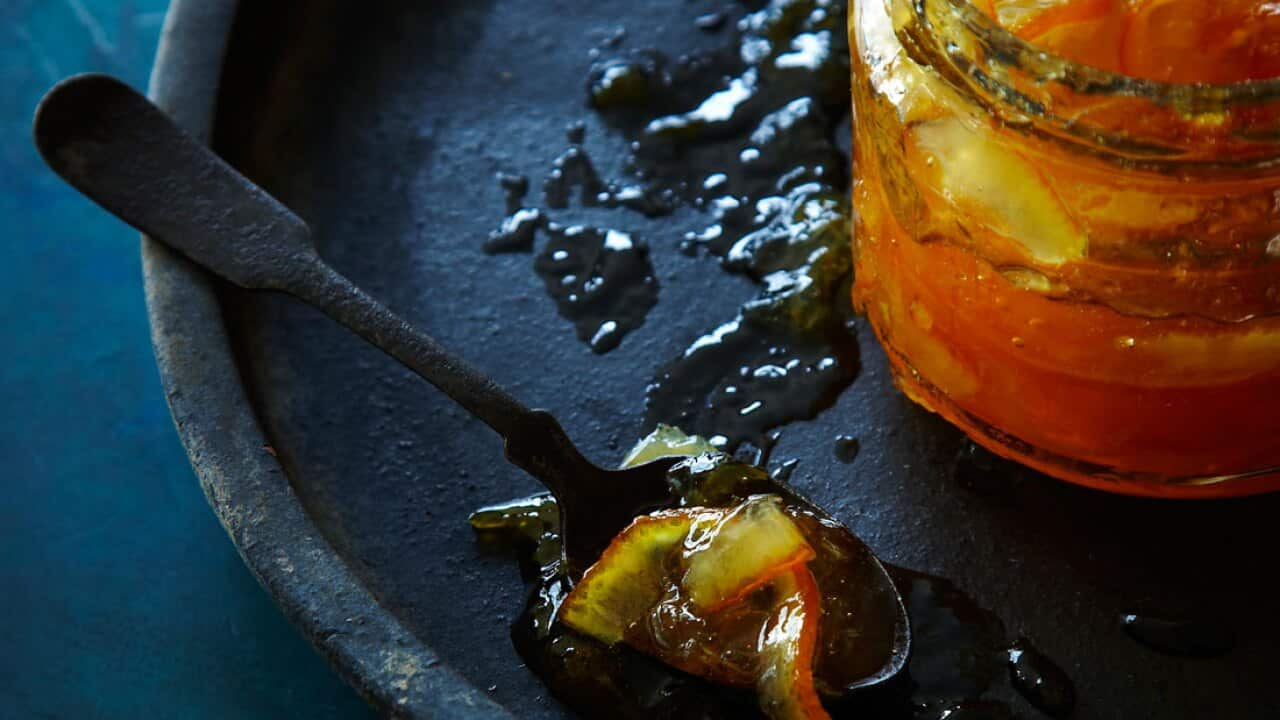prep
15 minutes
cook
2 hours
difficulty
Easy
preparation
15
minutes
cooking
2
hours
difficulty
Easy
level
Ingredients
- 1 kg oranges
- 1½ cups sugar to every one cup or pulp
Makes approximately 9 cups
Standing time overnight
Instructions
Cut the oranges in half from top to bottom, then thinly slice across the orange halves. Place into a large bowl and pour over just enough water to cover. Stand overnight.
Place into a large shallow pot. The pan being more shallow allows for the liquid to evaporate more quickly.
Cook over a medium heat until the rind is tender, this may take between 15 and 30 minutes. The thickness of the peel and the thickness of the slices will vary the cooking time.
Measure the cooked orange pulp and return to the pan with the sugar, stir over a low heat until all of the sugar has dissolved.
Bring to the boil over a high heat, reduce the heat and simmer until the marmalade jells when tested. This could take anywhere from 1–2 hours. To test the marmalade, place a saucer into the freezer. Place a teaspoon of the cooking marmalade onto the cold saucer and allow it to cool, the marmalade should “jell” on the plate and not run when the saucer is tipped up. Be careful to not overcook or this will produce a dark syrupy marmalade.
Allow the marmalade to mostly cool in the pan and then pour into sterilised jars. If the marmalade is put into the jar hot the pieces of rind will rise to the top. Allow to cool completely and the cover the jars with the lids. Store in a cool dark place and then refrigerate once opened.
Photography by Petrina Tinslay, styling by David Morgan and art direction by Anne Marie Cummins.
Cook's Notes
Oven temperatures are for conventional; if using fan-forced (convection), reduce the temperature by 20˚C. | We use Australian tablespoons and cups: 1 teaspoon equals 5 ml; 1 tablespoon equals 20 ml; 1 cup equals 250 ml. | All herbs are fresh (unless specified) and cups are lightly packed. | All vegetables are medium size and peeled, unless specified. | All eggs are 55-60 g, unless specified.

